A little more than an hour west of Shanghai by modern highway, our first was Tong Li. This little town had a conventional land-side commercial and residential zone.
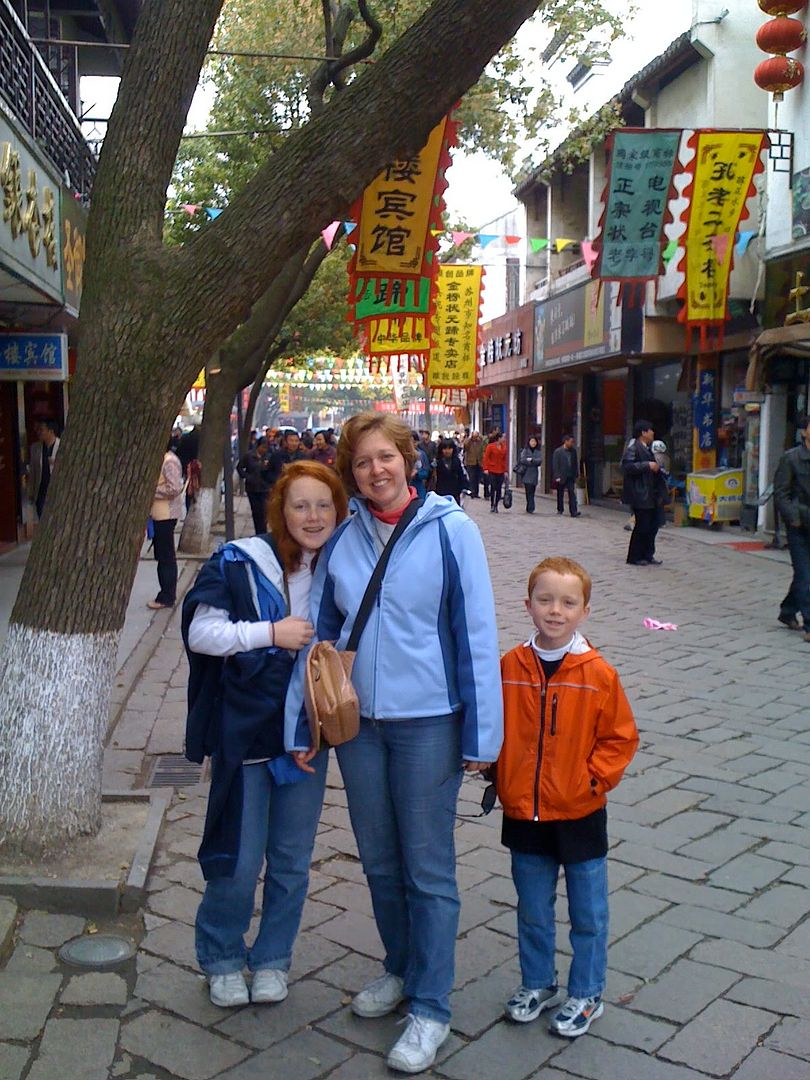
With the payment of a few RMB, you could pass over into the much older waterside part of the town. This part of the town was marked with narrow alleys, slim canals, and ancient bridges.
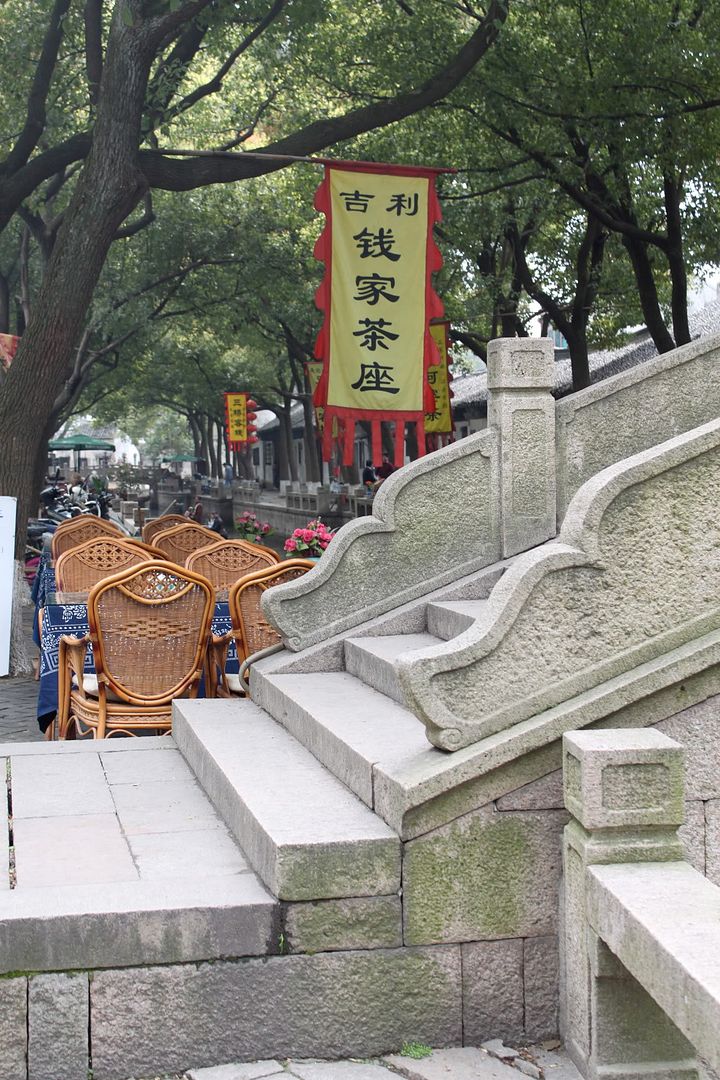
We saw this unusual fishing vessel tied to the side of the canal.

The birds are tethered to the boat. The fisherman sends the birds out to hunt for fish, which they bring back to the boat in exchange for a portion of their catch. Avian sharecroppers, as it were.
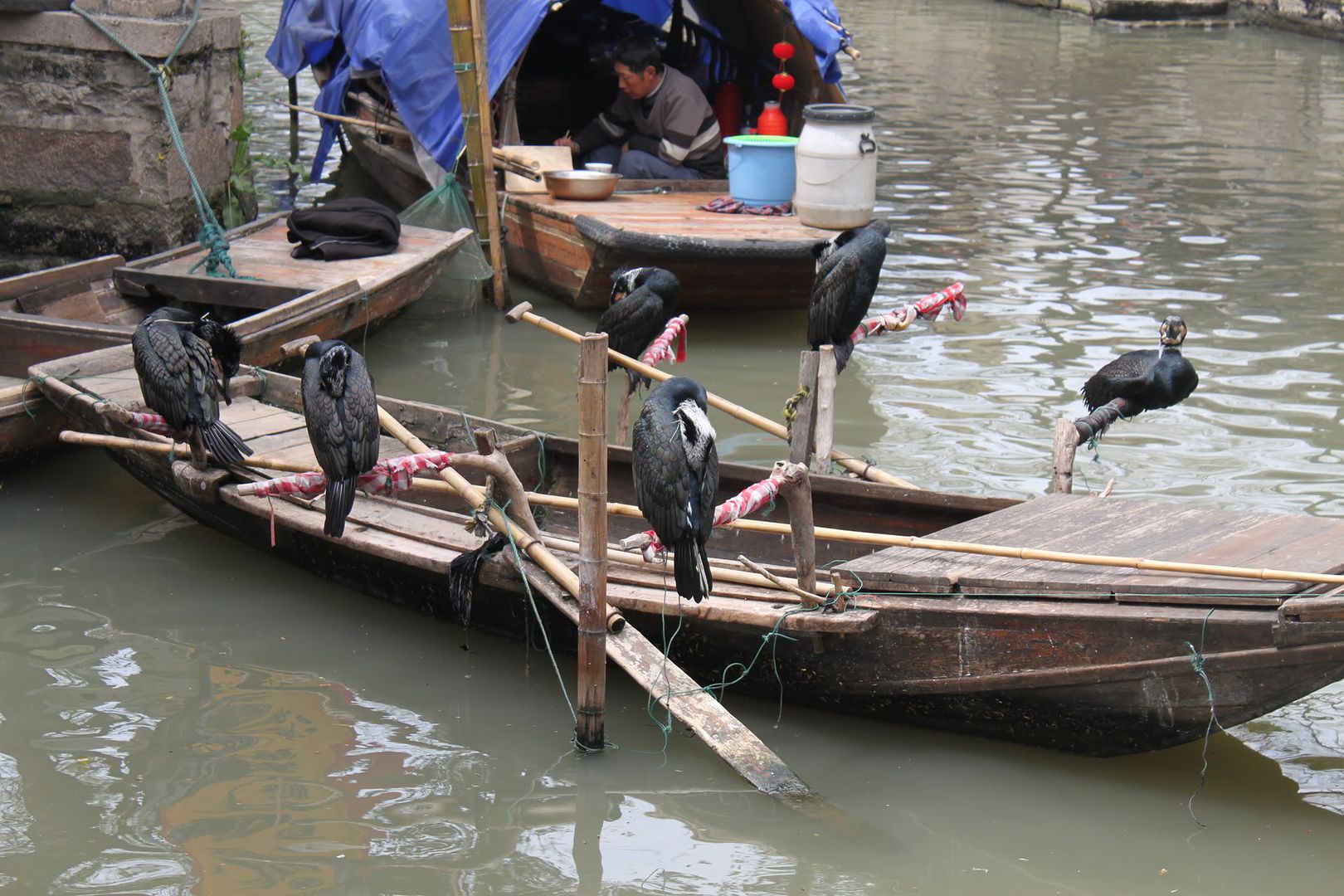
We spent much of our time in Tong Li shopping for souvenirs in a few of the many tiny shops that line the canals. That left us with no time to visit the China Sex Museum. That’s probably for the best.
After a semi-harrowing tram ride back to the car, we took country roads to the next watertown of Zhujiajiao. I was particularly interested in traveling the smaller roads to get a feel for the Chinese countryside. Like much of America, the rural landscape is dotted with small towns and houses here and there. What was different and, I think, uniquely Chinese was that where barns would stand in farmers’ fields in a similar trip in the US, there were small factories rising from countless Chinese fields. They were not the massive facilities at factories usually become stateside; most were relatively modest in size, the size of a large gymnasium. There was no way to tell what sorts of widgets they were building, but it was clear that China’s status as the world’s preeminent producer of consumer goods is well-earned by the efforts of what must be hundreds or thousands of similar operations.
A typical truck on Chinese roads:

At Zhujiajiao, we dropped in on the local KFC for lunch. The employees were less adept with English than their counterparts in Shanghai (where I had no trouble ordering lunch at a McDonald’s several days before), but like most restaurants we visited, every item on the menu was shown in a picture.
After consuming chicken infused with the very familiar 11 herbs and spices, we crossed over a tall bridge and wandered about in the very charming town.
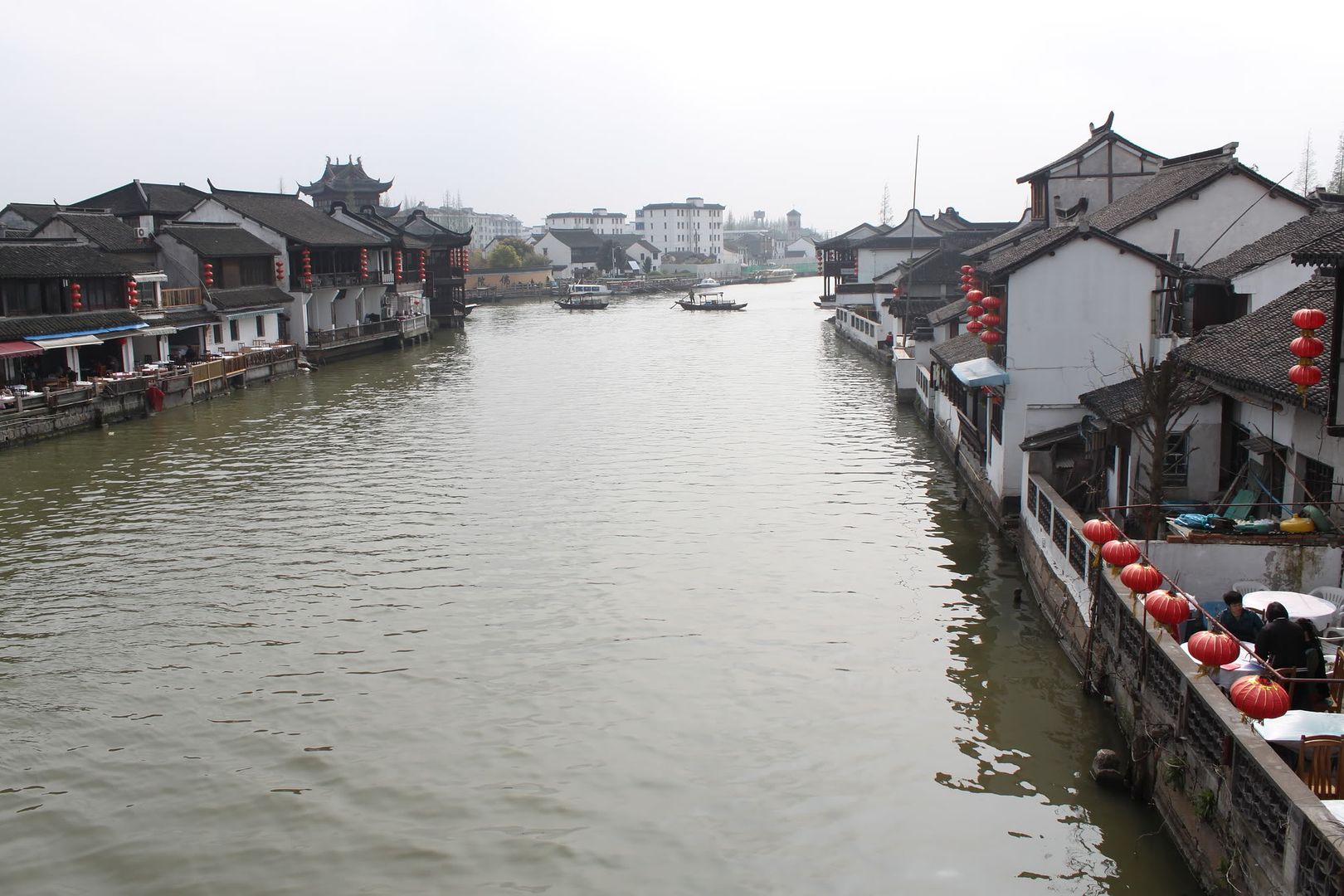
The alleyways were tight, full of a combination of traditional food establishments and tourist trinket stores.

Cheryl hard at work, hunting for souvenirs:

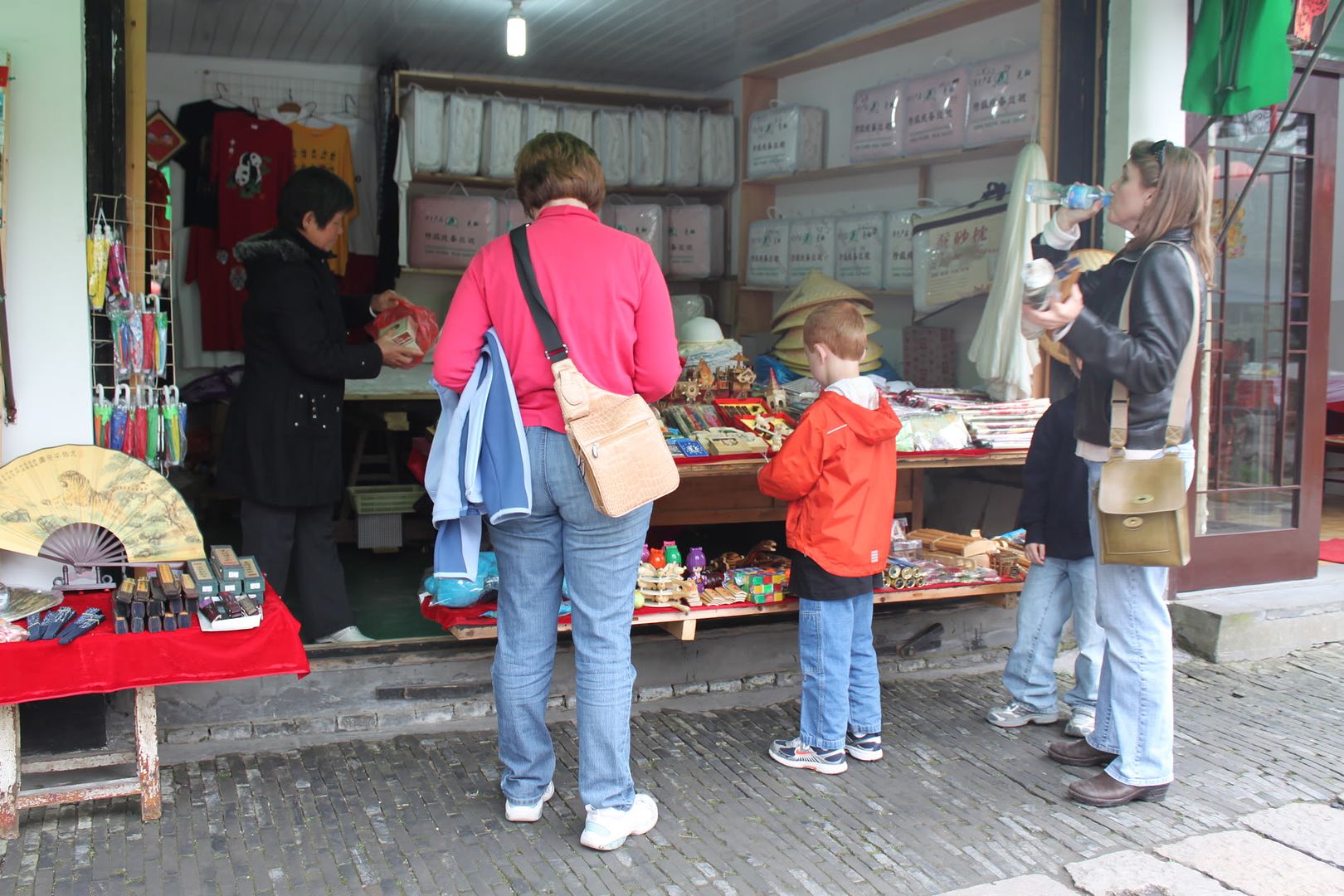
We enjoyed exploring the extensive gardens of a formerly private (and grand) home in the town:
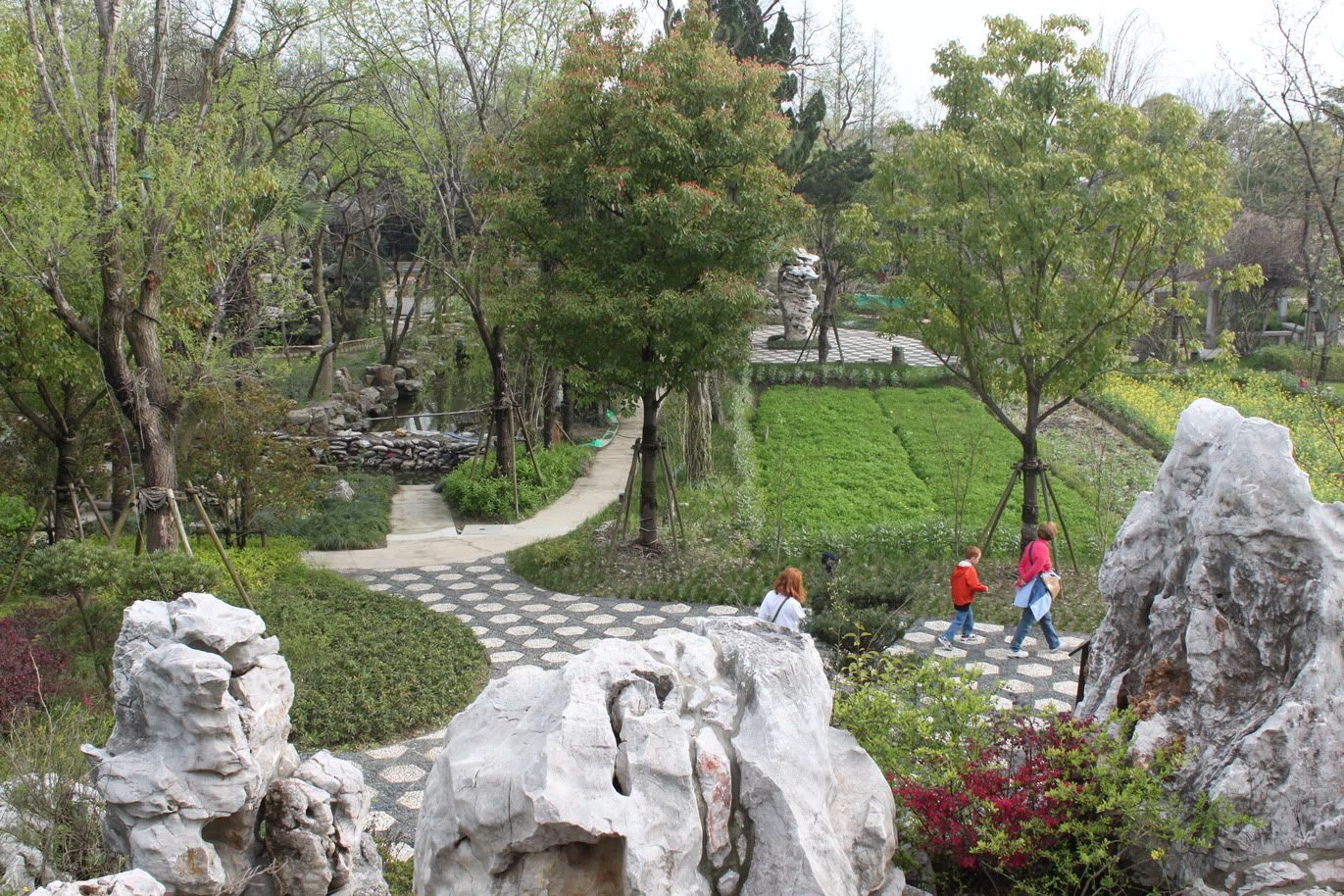
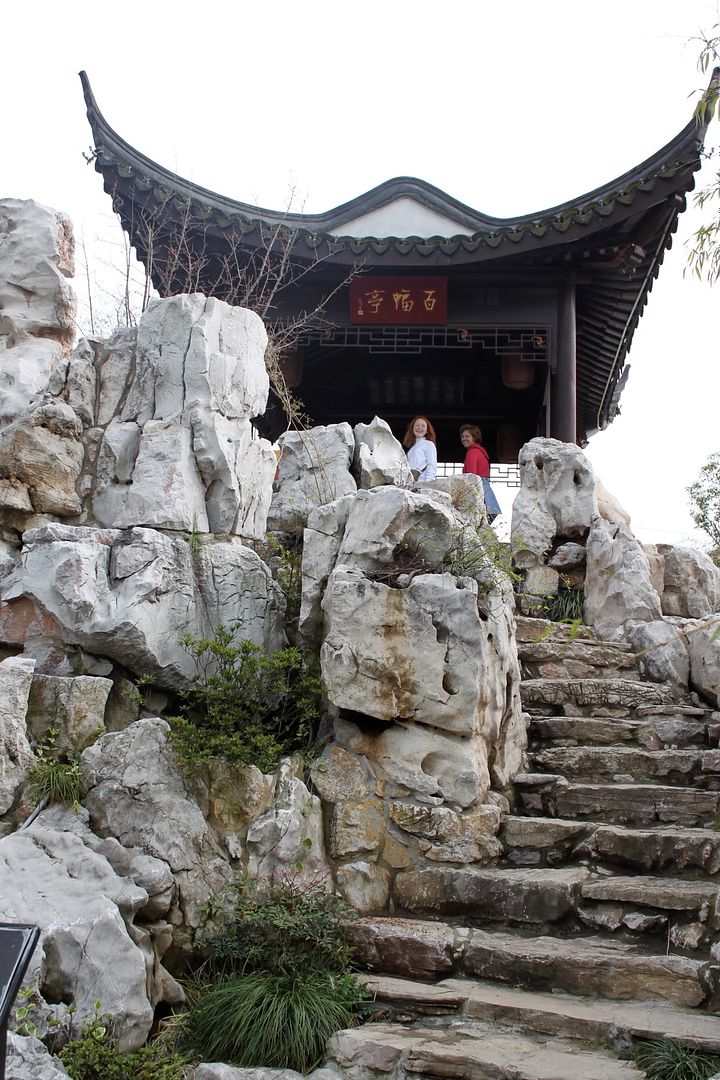
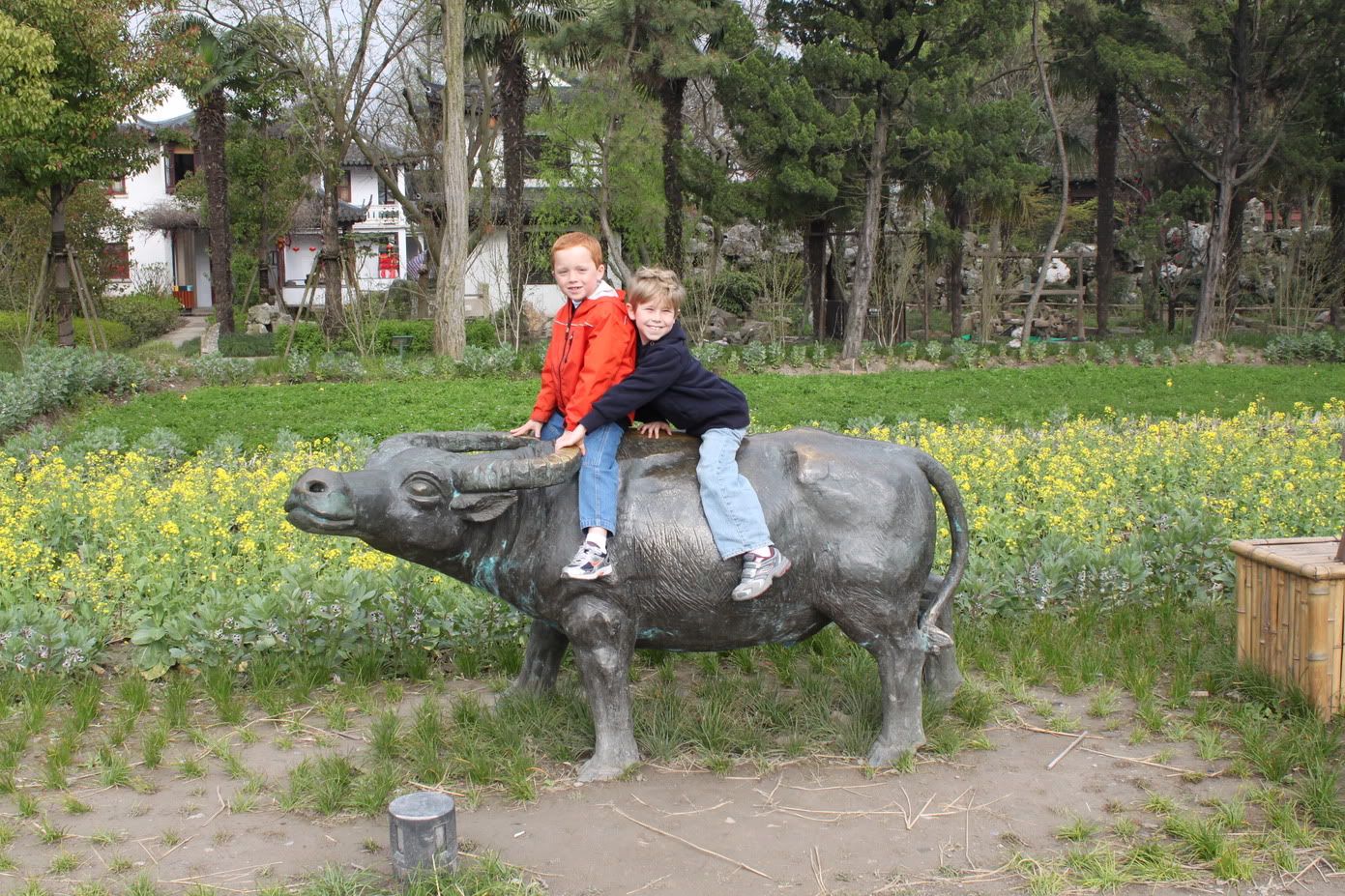
We had our most unusual and overt "foreigner" moment in Zhujiajiao. Two young Chinese women approached Michael and I, pantomiming using a camera and pointing at Michael. I gathered that they wanted to take a picture with him. We were in a public place and I was bigger than they were, so I figured it was safe, and the novelty of it was too funny to pass up. One girl happily posed with Michael while her compatriot took a couple of pictures. For his part, he was too surprised to do anything but flash his smile automatically when the camera came out.
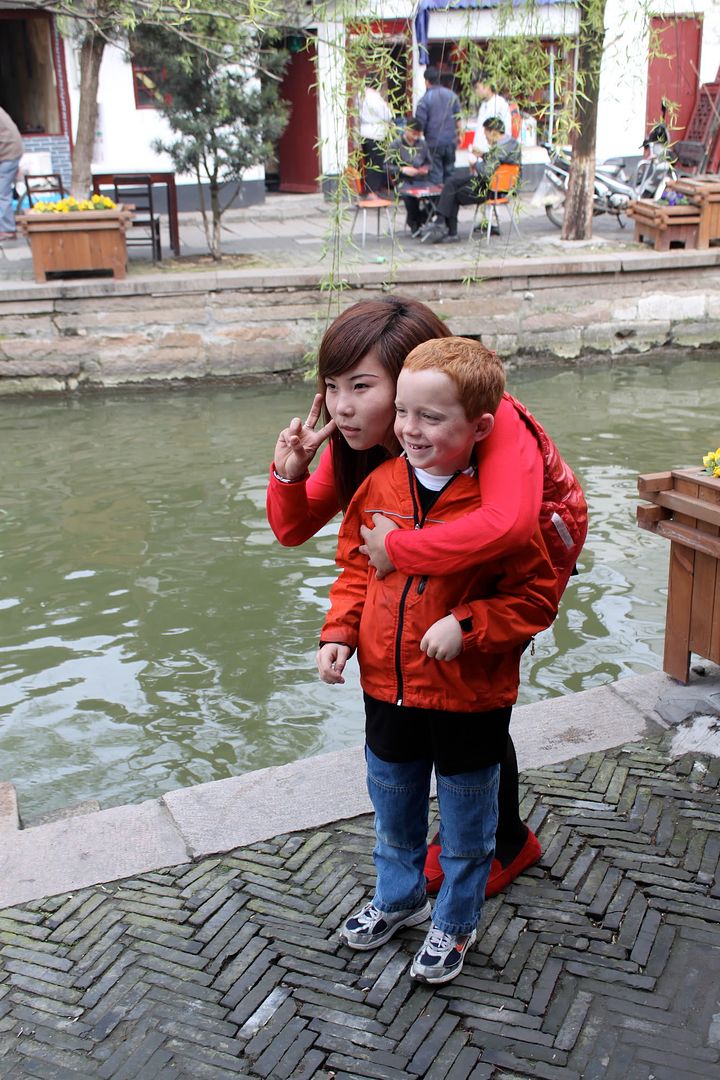
After the girls went on their way after offering gracious thanks to us, though, Michael had words with me. Sternly, he made it clear that I was to ask his permission before granting photo privileges. Point taken.
One of the reasons we went to Zhujiajiao in particular is because it is where a prominent paper cutting artist works and sells his wares. Greg and Kate have a number of his beautiful creations in their house, and we looked forward to finding one for ourselves. Unfortunately, on the day we visited, the artist was not working. Instead, we found another shop where a woman and her aged father created beautiful watercolor and calligraphy scenes. We bought a number of pieces from her, some the size of index cards that Kelly gave to a number of her friends, and some larger pieces. Although the town clearly caters to tourists, there is still something charming and honest about buying art that this woman and her father (who was outside in an alley working on new pieces while we were there) had created.
When it was time to leave, we took one of the many riverboats piloted by a man with a single oar off the back of the boat. With a well-practiced twisting action, he deftly propelled the boat forward and steered it with the single oar.


After we returned to the house, it was time to start packing for the trip home. Greg and Kate’s nanny (Xiao Wu, the kind young lady who had let us into the house the first day), had diligently washed and folded our clothes all week, which made packing a simple exercise. (Greg and Kate had advised us before our trip that Xiao Wu would take care of laundry, so we were able to pack very lightly. Considering the challenges we faced in the airports, packing lightly made a huge difference in simplifying our travel as much as possible.)
Packing to leave also meant that it was time to tackle the travel demons again. I had been unable to get seat assignments for our homeward flights, and knowing how full all of our flights had been, and how lucky we had been to be seated anywhere near each other, I was becoming worried that we would be scattered all over the airplanes for the trip home. Since we were within 24 hours of our departure, I made a concerted effort, through a towering display of patience, to work through the airlines’ phone systems to try to get our seats for the trip. After innumerable keypresses, I managed to get through to an Asiana customer service representative. She assured me, cheerfully, that the only place I could reserve seats was at the airport itself. Although that was disappointing, it was also somewhat liberating. We could not do a thing to control where we would sit until we got to the airport, so there was no sense in worrying that I was missing some opportunity to make our lives easier (which is how I spend much of my worry time on a regular basis anyway).
All that remained, then, was an easy morning of last-minute souvenir buying and a trip to the airport. We knew, though, that our adventure would not end until we got all the way home.
No comments:
Post a Comment